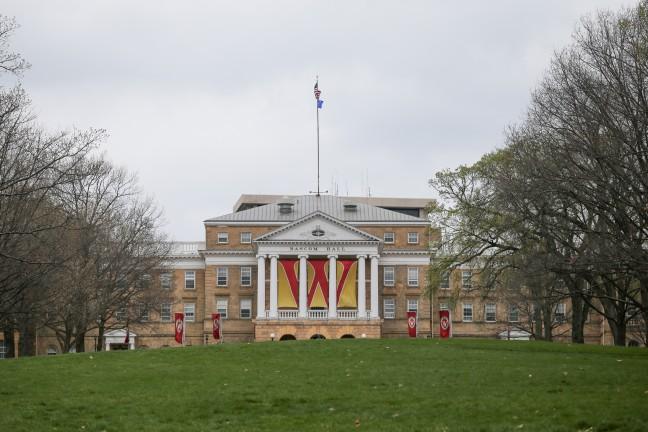
University of Wisconsin System chancellors asked for the creation of local advisory boards to improve communications with the Board of Regents at the third meeting of Special Task Force on University of Wisconsin Restructuring and Operational Flexibilities yesterday.
UW Interim Chancellor David Ward and UW-Milwaukee Chancellor Michael Lovell said the creation of local advisory boards would allow campuses to deal with the unique sets of circumstances and complex revenue stream problems they face.
“I hope this spring will be about how we can maximize individual advantages of each campus to create new value,” Ward said. “Old systems have a one size fits all. Having a wide variety of institutions is critical, and while I’m not sure we got our hands around [this issue] last spring, I hope we can do it in this encounter.”
Under their proposal, the boards would inform the chancellor about advocacy approaches and work with upper level management at the university in strategic planning efforts.
Ward said the groups would not only consist of local advocacy members, but also include Board of Regents members. He said this would enhance the relationship between what occurs at the campus level and what happens at the UW System and state level.
“Both of us have thought of the idea of having two to three regents on the advisory board, which would allow internal governance groups to be exposed to the relationship between mission and revenues,” Ward said. “It doesn’t undermine the power of the regents and creates a richer engagement with the campus.”
JoAnne Brandes, co-president at the Center for Leadership Excellence in Milwaukee, questioned the amount of authority the proposed advisory boards would have.
She said the creation of these local boards could cause a “paralysis of authority.”
“In a company, a board of directors holds a CEO accountable,” Brandes said. “Where is the authority here? Why not a governing board instead of an advisory board”?
Ward said while a governing board could be helpful, it would be a much more difficult task than their current proposal. He also said that being chancellor was not like being a CEO, but instead the mayor of a “messy city.”
Former UW Regent Fred Mohs also expressed concerns the proposed boards could create unnecessary conflicts and create an uneven balance of power between the UW campuses.
“I have trouble seeing how this would help very much,” Mohs said. “I can see problems where they’d be winners and losers.”
A portion of the discussion was also spent talking about possible new flexibilities to grant UW-Milwaukee and UW.
The Wisconsin Student Lobby, a student organization at UW, released a statement Wednesday before the meeting supporting the additional flexibilities.
The statement said the flexibilities could include loosening the regulations around the construction of new facilities, allowing UW to establish a pay plan for all of its employees and delegating the power to establish tuition and fee rates to the campus.
The statement said these newly approved powers should not rest with the chancellors or their designees, but instead a governing body should continue to control them. WSL encouraged the creation of a Board of Trustees for the Madison campus that would retain institutional connections to the current UW System Board of Trustees.













